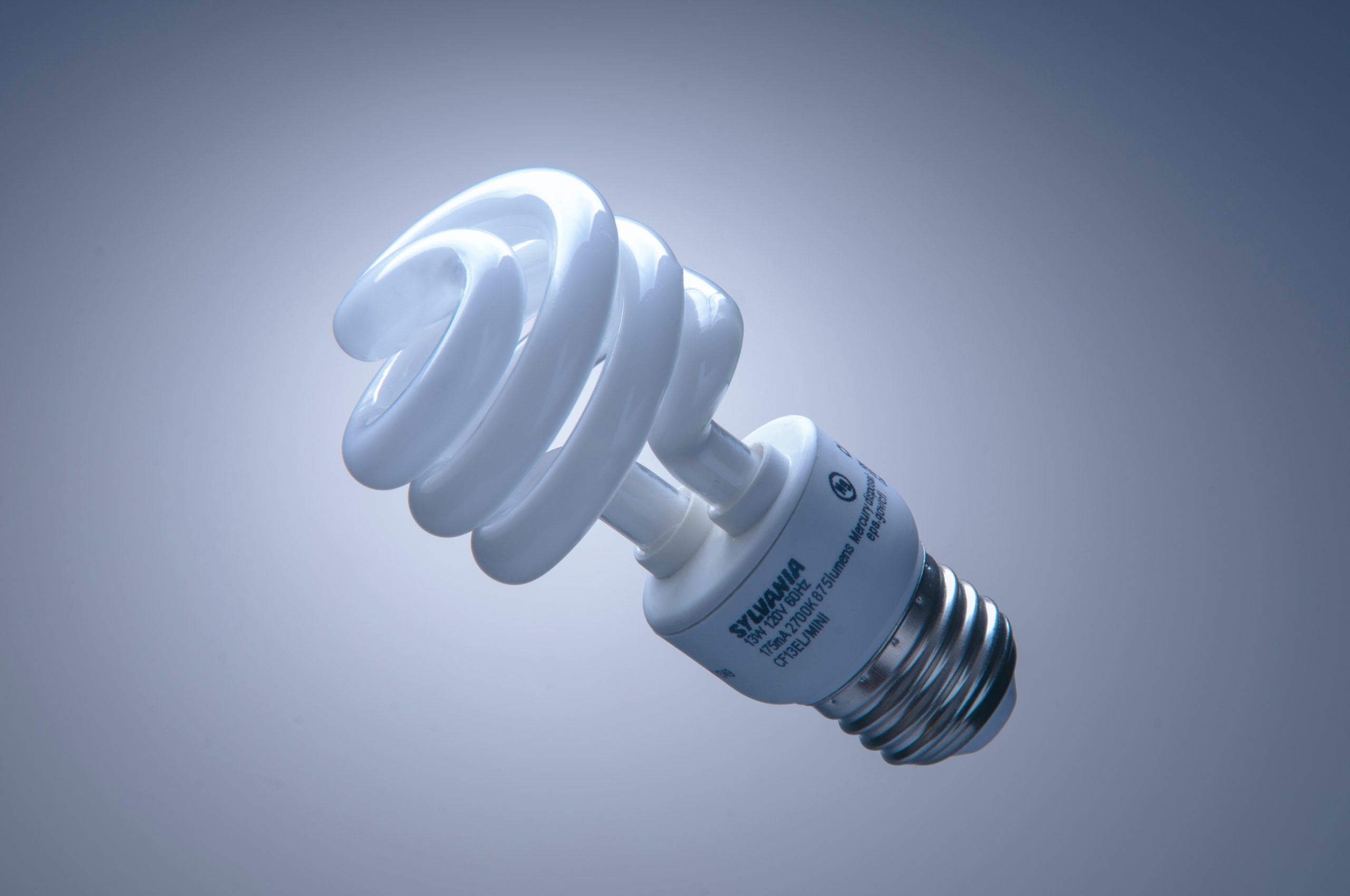Are you looking for a light bulb that will help you save energy and money? If so, you should consider switching to an energy-efficient light bulb. LED light bulbs are becoming more and more popular as people are looking for ways to reduce their carbon footprint. Each
type of energy-efficient light bulb we’ll discuss has unique features and plenty of benefits if you make the switch from incandescent bulbs.
Cree 60W Daylight Dimmable LED Light Bulbs

Cree is known for providing high-quality and affordable options for lighting. The Dimmable LED light bulbs are a long-lasting alternative to incandescent light bulbs and are rated at 25,000 hours of use. Cree energy-efficient light bulbs are bright white in color, consume around 10 watts of energy, and are backed by a ten-year warranty. They also have a dimmable option to reduce the light and create a relaxing space. They range in price between $8-13 per light bulb.
Phillips 60W LED Light Bulb

Phillips is a well-known lighting manufacturer that makes LED and incandescent light bulbs. The 60-watt LED light bulbs are energy-efficient and cost-effective and can last up to 10 years. You can expect them to use about a quarter of the energy compared to an incandescent bulb. These bulbs tend to be more expensive, around $15-20 per bulb.
Phillips Hue Smart Light Bulb

Smart light bulbs are becoming more popular and can be controlled using your smartphone or virtual home assistants such as Alexa or Google Assistant. Phillips has created a smart light bulb that can save energy and has a hue system sold separately. These are long-lasting and are expected to last around 22 years or 25,000 hours. Phillips Smart LED light bulbs are a great option for those who want to reduce their energy consumption and want the ability to control their lights even when they are away.
GE LED Bright Stick 6-Watt Light Bulb

GE offers an LED light bulb that uses 6-watts of energy and lasts over 13 years. These are sleek, modern, and affordable. GE LED light bulbs are a versatile option and can be placed just about anywhere in your house in various sizes. These light bulbs are also around $13 per bulb.
Energy Star Certified Light Bulbs
Energy Star-label items have strict guidelines that the EPA sets. Any
Energy Star-rated light bulb is excellent at reducing greenhouse gas emissions, energy waste, and energy costs. They use 90% less energy and last 15 times longer than standard light bulbs. Energy star light bulbs also reduce the amount of heat produced and can help with cooling costs.
What Does Energy Efficiency Mean?
When a light bulb is labeled as energy-efficient, it uses less wattage to produce the same light output as a standard light bulb. For example, an LED light bulb might use only 12 watts to make the same light output as a 60-watt incandescent light bulb. The term “energy efficiency” often gets confused with “energy-saving.” An energy-saving light bulb will help you save money on your electric bill, but an energy-efficient light bulb will use less energy to produce the same amount of light.
What To Look for When Choosing Light Bulbs
Lumens
Lumens are a unit measurement of brightness for a lightbulb—not wattage. So, when you’re looking for a new lightbulb, make sure to look for the lumens rating and not the wattage. The higher the lumens number, the brighter the light will be.
Color Temperature
The color temperature of a light bulb is measured in Kelvins. A low color temperature will produce a yellowish light, while a high color will be bluish. A warm color temperature will make light more orange in hue and is ideal for bathrooms or bedrooms.
Cost
The cost of light bulbs varies depending on the type and brand. Some light bulbs are more expensive than others, but they often last longer and use less energy. Make sure to compare prices before you buy new light bulbs.
Benefits of Making Energy Efficiency Improvements
When you switch to energy-efficient light bulbs, there are many benefits. Not only do they reduce your carbon footprint, but they can also help save money on your electric bill. Another great benefit is that they last much longer than traditional light bulbs, so you won’t have to replace them as often.
Making small changes such as switching to energy-efficient light bulbs is a great way to start reducing your impact on the environment and saving money. There are plenty of options available that range in price, so you can find one that fits both your needs and budget. Consider making the switch today!
You can also consider other changes such as energy-efficient windows and doors and energy-efficient appliances or upgrading your home’s
insulation. They use less energy and provide potential energy savings. Your home can be an energy efficiency powerhouse by making simple changes.
Mass Save Program and Energy Efficiency Incentives
If you live in Massachusetts and are improving energy efficiency in your home, check out the Mass Save Program. Switching incandescent bulbs to energy-saving ones can qualify you for specific savings and rebates. Mass Save provides a product discount for energy-efficient light bulbs and light fixtures.
You can always check out the
Mass Save website to see other rebates and discounts you can qualify for when updating your home with energy efficiency upgrades.
Contact Wattson Home Solutions for Energy Efficiency Upgrades
When it comes to energy efficiency, the team at Wattson Home Solutions are the experts. We can help you reduce energy waste and improve your energy use by making simple changes. Our team can come and conduct a free
energy assessment of your home so you can find vulnerable areas of your home where energy use is high.
Contact our team and find out how we can help you reduce your energy bills today!











